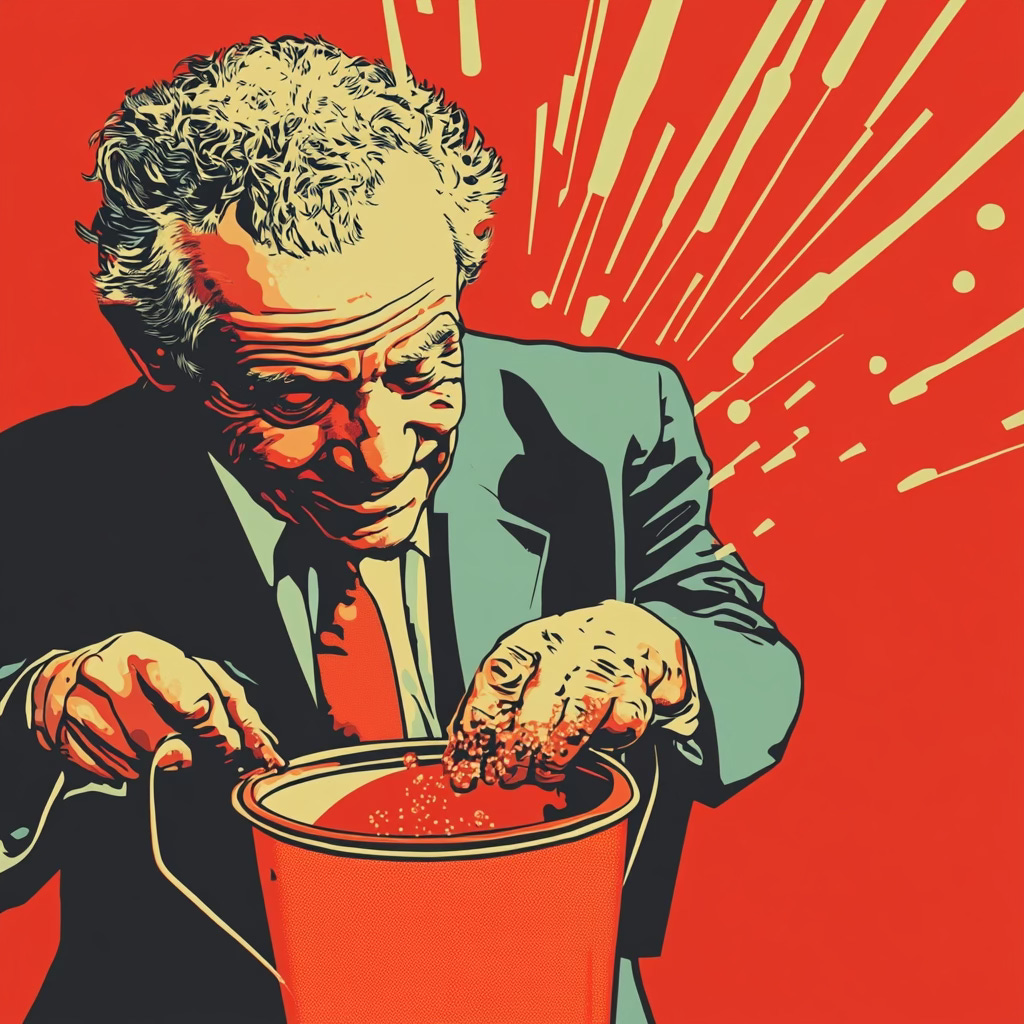In the dim corridors of modern schooling, where dull lights illuminate row upon row of passive, staring faces, society celebrates a supposed “progress”—the rise of universal education. And yet, beneath this polished exterior lies a sordid truth, a foundation built upon the ancient illusions of our ancestors. Chief among these is the enduring “Bucket Theory of the Mind,” a doctrine so profoundly erroneous that it should have been cast into the flames of history centuries ago. But instead, this myth persists as the heart of today’s educational apparatus, a relic clinging with the tenacity of a parasite to a world too lazy to think anew.
According to this theory, the mind of the student is an empty vessel, a hollow container waiting to be filled with knowledge by those who claim to possess it. Knowledge, in this view, is something inert, transferable, and unquestionably complete—a deposit that can be poured from one mind into another. How quaint! Like primitive mystics entranced by ritual, we pass down facts to be memorized and skills to be replicated, hoping to manufacture obedient replicas of our own limitations. This process has been polished over time, given the appearance of kindness and even nobility, but make no mistake: the essence remains unchanged. It is the same bleak falsehood dressed in gentler garb, a denial of the individual’s power to create, to question, to transcend.
How far this is from the truth! Knowledge is not a package of facts to be delivered and received; it is a force—an unbounded, dynamic power that grows within the individual. Knowledge is an act, a process, an unfolding of potential and understanding driven by the very will to live, to know, to conquer. Karl Popper, the radical critic of his time, grasped this; he understood that learning was an act of personal transformation, an endeavor sparked by one’s own will to power. But Popper’s insights, bold as they were, sank quietly into the background, drowned out by a world too comfortable, too complacent to challenge the tyranny of tradition.
The error is glaring, and its consequences are tragic: we treat education as reproduction, not creation. We dismiss the child’s innate drive to challenge, to rise, to carve meaning from the chaos of experience. We stifle the very force that defines human greatness—the fierce individual will to question, to doubt, to build. Where, in this system, is the heroic vision of man as a creator, as a being of purpose and power? Instead, we treat the child as a passive receptacle, an empty vessel to be filled with the values of the past, as though the mind were a hollow shell rather than a forge.
In doing so, we deprive them of the essential struggle that would make those values their own—struggle not as a grim duty, but as the birthright of every human soul that dares to think, to strive, to create. The classrooms of today have banished the spirit of the individual, reduced learning to a process of absorption, robbed it of its vitality. The child, instead of being an innovator, a thinker, a doer, becomes a mere echo of someone else’s thought. And thus, we kill in them the spark of independence, the drive toward self-made purpose.
Education ought to be the celebration of the mind, not its confinement. The classroom should be a place where new ideas are forged, not copied; where the spirit of individualism, not the dead weight of conformity, reigns supreme. But as long as we regard knowledge as a static inheritance, as long as we see the student as a mere receptacle, we will continue to deny the mind its true glory—the glory of creation.
And still, our schools persist in this outdated theory. They measure success not by the power to innovate or critique, but by the dead art of memorization and repetition. They create machines to recall facts and regurgitate formulas, while true learning—the fierce, passionate drive to know and understand—is left to wither. Our exams measure the residue of what has been dumped in, not the flames of curiosity and engagement that would be the mark of genuine intellectual growth. How tragic!
Consider the contrast: see the child yearning to hold an iPhone, that symbol of personal freedom and limitless access to information. In those moments, they are not driven by compulsion, but by desire—the pure, unrestrained will to knowledge, to power, to self-discovery. Even the story of Frederick Douglass, that towering figure who risked his life to read, to learn, to rise, reveals this truth: human beings seek knowledge when it fuels their will to transcend, to reach beyond, to defy the boundaries of circumstance.
The great delusion is that education must be imposed. But learning, real learning, is not imposed; it is an act of creation. It is an expression of the individual’s power, the outward manifestation of a mind asserting itself. Schools must become places where this power is recognized, where students are encouraged to question, to critique, to shape understanding for themselves. This is the only way to break free from the oppressive chains of the past, the only way to create an education worthy of the human spirit—a spirit that yearns not to be filled but to be unleashed.
This, then, is the path forward: to cast off the dead weight of tradition, to reject the transmission of static knowledge, and instead to kindle a new life within each mind. An education not of passive reception, but of active creation, where the will to power, the will to know, the will to become are ignited. This is the only education worthy of those who would rise, those who would strive, those who would become fully human—and, indeed, more than human.




